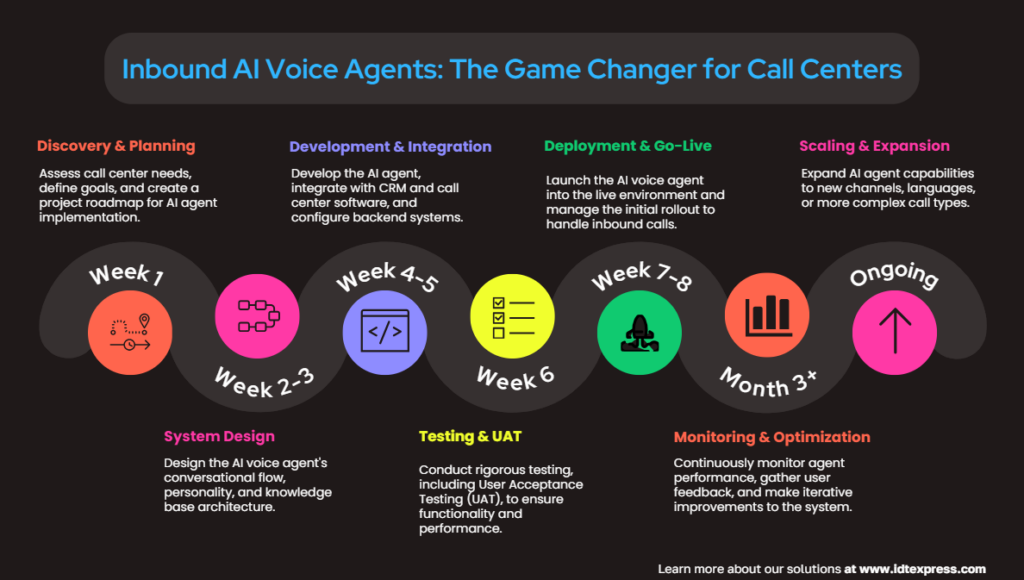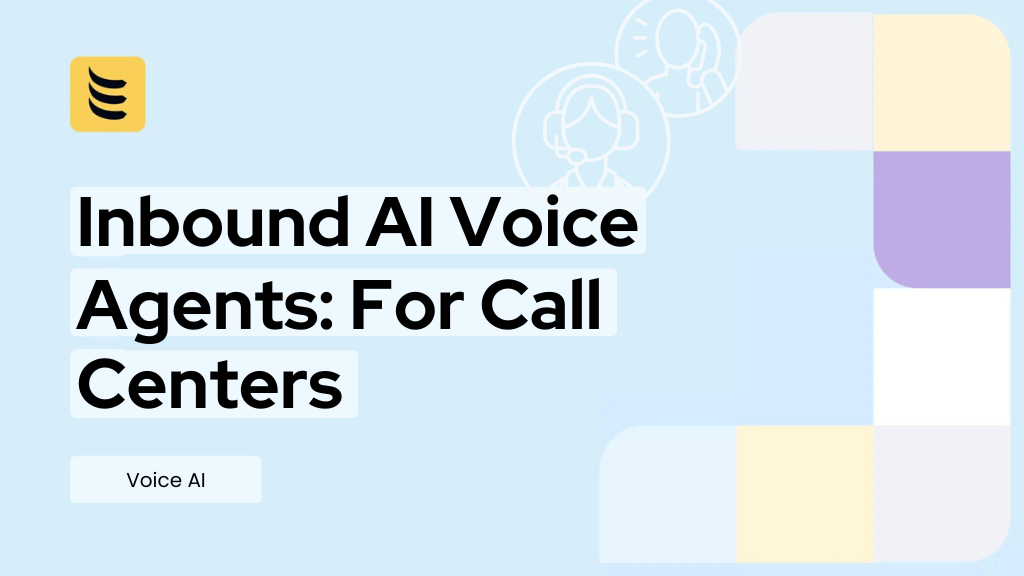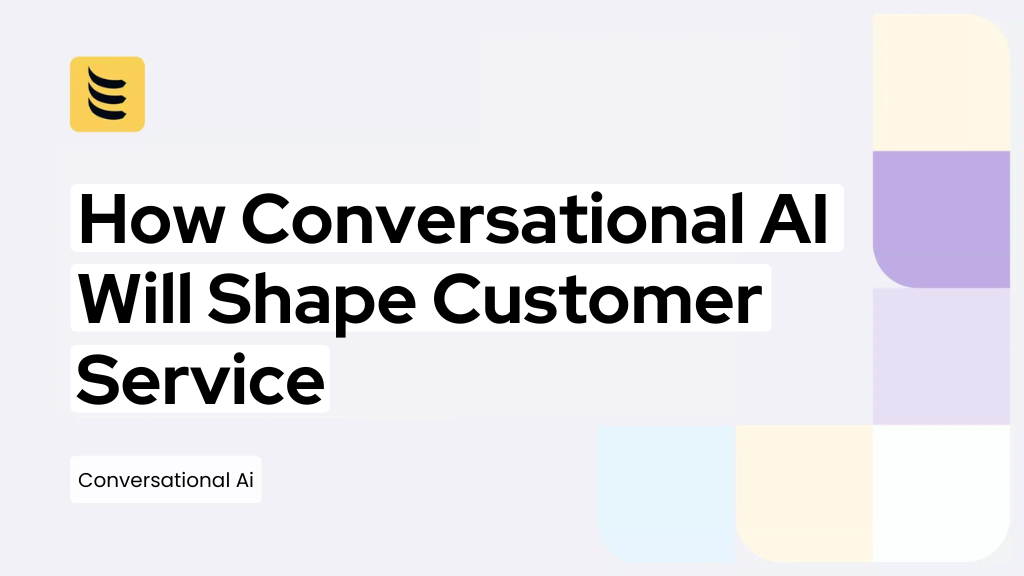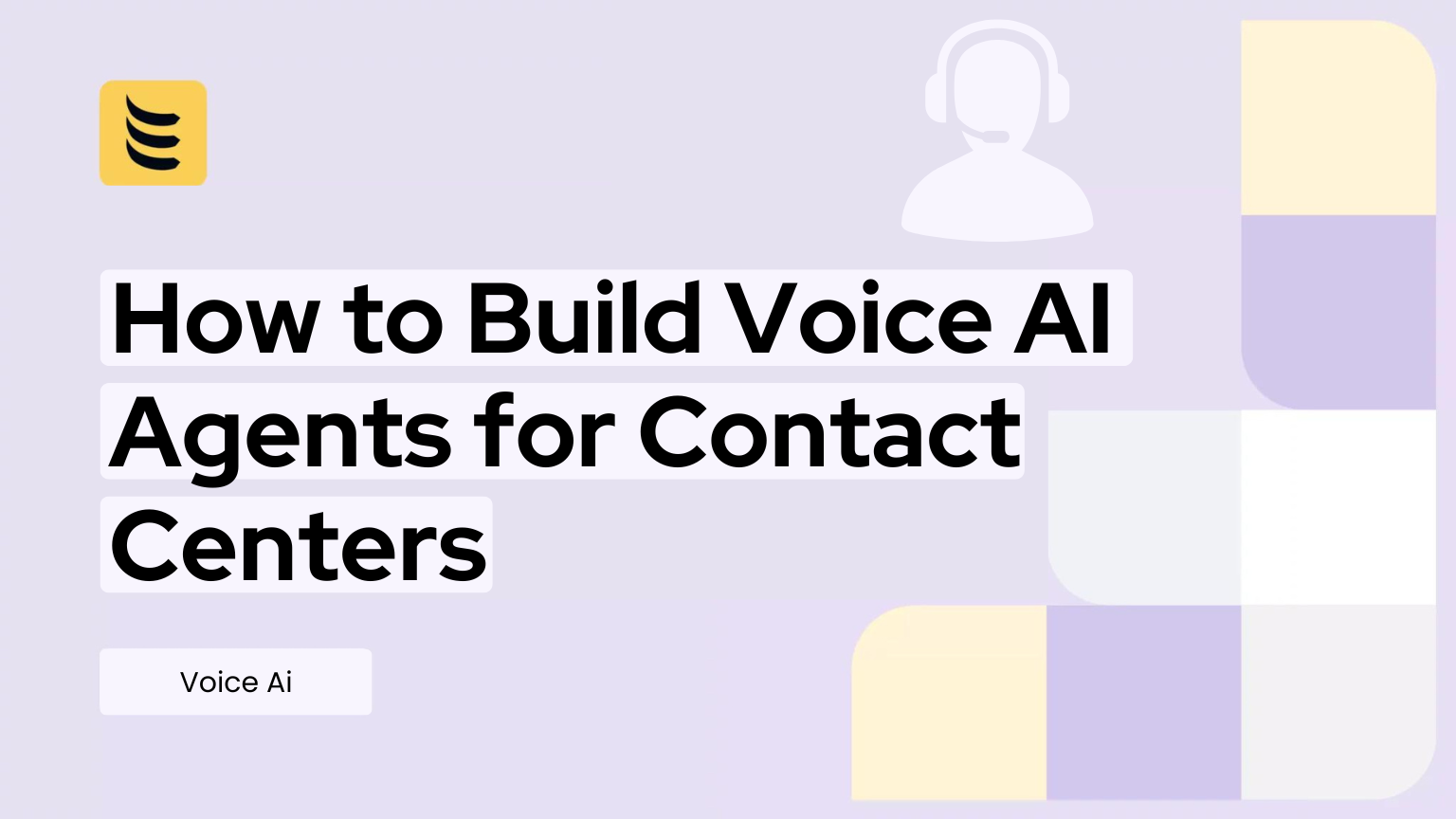Hey there, you know how call centers can be a real pain sometimes, right? Long wait times, repetitive conversations, and sometimes, you just don’t get the help you need. Well, there’s a new kid on the block that’s shaking things up – Inbound AI Voice Agents. These smart cookies are not just answering calls but are also resolving customer queries, and doing it faster than ever. In 2023, IBM reported a 30% reduction in call handling time with their AI voice agent “Watson“. But it’s not all sunshine and rainbows. Implementing AI can be tough, and there are some serious pitfalls to avoid. So, if you’re thinking about bringing AI into your call center, you’ve got to know the good, the bad, and the ugly.
Decoding Inbound AI Voice Agents: What are They?
You may have heard the term ‘Inbound AI Voice Agents’ and wondered what the heck they are. Well, you’re in the right place. Inbound AI Voice Agents, sometimes known as virtual voice assistants, are advanced computer programs that leverage artificial intelligence to interact with humans in a conversational manner. In a nutshell, they’re the tech-savvy entities that answer your customer service calls or guide you through automated systems.
The technology behind these agents is quite fascinating. They use a combination of machine learning, natural language processing, and speech recognition to comprehend and respond to human speech. They’re designed to understand context, interpret commands, and even learn from past interactions to improve their responses.
For instance, in 2023, Google’s Contact Center AI, an inbound voice agent, was reported to handle over 1 million customer interactions daily, with a satisfaction score of 85%. This showcases the efficiency and effectiveness of these AI voice agents.
But how do they function? When you call a customer service number and are greeted by an automated voice, that’s an inbound AI voice agent. They listen to your query, process the information, and provide an appropriate response. They can perform a wide range of tasks, from answering basic FAQs to guiding you through complex procedures.
The key benefit of these agents is their ability to handle multiple calls simultaneously, 24/7, without getting tired or frustrated. They can significantly reduce waiting times and improve customer experience. However, the challenge lies in ensuring they understand diverse accents, dialects, and colloquial language. Also, they should be capable of handling sensitive situations with empathy, which is still a work in progress.
So, the next time you’re on a call with an automated voice, remember, you’re interacting with an advanced piece of technology designed to make your life easier. Understanding and appreciating this tech marvel is the first step in decoding inbound AI voice agents.
The Game-Changing Role of AI Voice Agents in Call Centers
You’re probably wondering, how exactly do AI voice agents revolutionize call center operations? Well, let’s take a closer look.
When it comes to efficiency, AI voice agents are a game-changer. They can handle multiple calls simultaneously, reducing wait times and freeing up human agents for more complex tasks. For instance, in 2023, IBM reported a 40% increase in call handling efficiency after implementing their AI voice agent, Watson.
Customer satisfaction also sees a significant boost. AI voice agents are available 24/7, ensuring customers can get help whenever they need it. Plus, with their ability to learn from past interactions, these AI agents can provide personalized responses, enhancing the customer experience.
But it’s not all smooth sailing. Implementing AI voice agents can bring challenges. Training these agents to understand diverse accents and colloquial language can be tricky. Yet, solutions are emerging. For example, Google’s Dialogflow uses machine learning to continually improve its understanding of human speech, making it a great tool for training AI voice agents.

Another challenge is the potential loss of the human touch in customer interactions. But you can overcome this by using AI voice agents for initial customer interactions and routing more complex issues to human agents. This way, you maintain the personal connection while reaping the benefits of AI efficiency.
So, if you’re looking to revolutionize your call center, consider implementing AI voice agents. They can significantly enhance efficiency and customer satisfaction, while potential challenges can be managed with the right strategies and tools.
The Positive Impact of AI Voice Agents on Inbound Call Efficiency
You’ve already learned what AI voice agents are and how they use machine learning, natural language processing, and speech recognition to interact with callers. Now, let’s focus on how these smart agents can dramatically improve the efficiency of your inbound calls.
Firstly, they drastically reduce wait times. Remember the last time you were stuck on hold, listening to the same loop of music, waiting for a human agent to pick up? With AI voice agents, this scenario becomes a thing of the past. These agents can handle multiple calls simultaneously, eliminating long queues and reducing wait times significantly.
Secondly, AI voice agents are cost-effective in the long run. Yes, there’s an initial investment involved in integrating AI into your call center operations. But once implemented, these systems can handle a high volume of calls 24/7, without the need for breaks or overtime pay. As a result, you can save on hiring additional human agents, especially during peak times. According to a 2023 study by Deloitte, companies that implemented AI voice agents saw a 20% decrease in operational costs within the first year.
But remember, the goal isn’t to replace your human agents entirely. Instead, use AI voice agents to handle routine inquiries, freeing up your human agents to deal with more complex issues. This way, you’re not only improving efficiency but also enhancing caller satisfaction – a win-win situation for your business.
Overcoming the Obstacles in AI Voice Agents Adoption in Call Centers
So, you’re ready to take the leap and integrate AI voice agents into your call center operations. But, naturally, you’re facing some technical hurdles. It’s a common challenge, but one that can be overcome with the right approach.
Firstly, ensure your existing infrastructure can support the integration of AI voice agents. This might involve upgrading your hardware or software, or even investing in cloud-based solutions to boost scalability and flexibility. Don’t shy away from seeking expert help if you’re unsure. Companies like IBM and Google offer AI integration services that can help you navigate this process.
Secondly, you need to train your AI voice agents effectively. Remember, they’re only as good as the data they learn from. Use diverse and representative datasets that include a wide range of accents, dialects, and colloquial language. And don’t forget to continuously update this training as language and customer behavior evolve.
Now, let’s look at some success stories for inspiration. In 2023, Vodafone New Zealand implemented AI voice agents in their call centers and saw a 35% reduction in call handling time within the first six months. They achieved this by focusing on comprehensive AI training and regular performance reviews.
In another instance, American Express successfully adopted AI voice agents in 2024. They prioritized seamless integration with their existing systems and invested in robust training for their AI. As a result, they experienced a 40% decrease in customer wait times and a significant improvement in customer satisfaction rates.
These examples prove that with the right approach and commitment, you can overcome the technical challenges of AI voice agent integration. So, take that leap. The rewards are well worth the effort.
Real-World Success Stories of AI Voice Agents in Call Centers
Remember when we talked about the game-changing role of AI voice agents in call centers? Now, let’s look at how companies have actually put this technology into action and reaped the benefits.
Take Amtrak, for instance. They deployed an AI voice agent named “Julie” to handle customer calls. Julie was programmed to understand natural language and could respond to a wide range of customer queries. With her help, Amtrak saw a 25% increase in customer bookings in 2024. The AI voice agent was not only able to handle multiple calls simultaneously, but it also provided personalized recommendations based on the customer’s previous bookings. This made customers feel valued and increased their likelihood of making a booking. So, if you’re looking to boost your sales, implementing an AI voice agent might be the way to go.
Now, let’s talk about IBM. They used AI voice agents to reduce call handling time in their call centers. Prior to the AI implementation, the average call handling time was around 10 minutes. With the introduction of AI voice agents, this was reduced to just 5 minutes. The AI voice agents were able to quickly understand the customer’s issue and provide a solution, reducing the need for transfers or long hold times. This led to happier customers and more efficient call center operations. If you’re struggling with long call handling times, an AI voice agent could be the solution you need.
These examples show that AI voice agents can truly revolutionize call center operations. They can handle a high volume of calls, provide personalized service, and reduce call handling time. So, if you’re still on the fence about implementing AI in your call center, consider these success stories as proof of the benefits.
Envisioning the Future: The Next Level of AI Voice Agents in Call Centers
Imagine your call center, bustling with AI voice agents that not only understand and respond to customers in their native language but also predict their needs before they even express them. This is the future you should be preparing for.
AI voice agents are set to revolutionize multi-lingual customer support. They’ll handle multiple languages and dialects, breaking down linguistic barriers and providing a seamless customer experience. For instance, imagine a customer from Japan calls your center. Instead of routing the call to a Japanese-speaking agent or making the customer struggle in a non-native language, your AI voice agent steps in. It understands and responds to the customer in fluent Japanese, resolving their issue efficiently. That’s the level of customer service you can provide when you embrace the multilingual capabilities of AI voice agents.
But the future of AI in call centers isn’t just about language proficiency. It’s also about predictive customer service. AI voice agents will analyze past interactions, purchase history, and even social media behavior to anticipate customer needs. For example, if a customer regularly contacts your center about their internet service around the end of each month, your AI voice agent might proactively reach out with a reminder to renew their plan or offer an upgraded package.
To harness these advancements, you’ll need to keep up with the latest AI technologies and continually train your AI voice agents with diverse data sets. Also, ensure your customer data management is top-notch, as this will fuel your AI’s predictive capabilities.
So, start gearing up for this future today. It’s not just about staying ahead of the curve; it’s about setting a new standard in customer service.
Final Thoughts
So, you see, implementing Inbound AI Voice Agents in your call center operations can be a real game-changer. It’s not just about reducing the workload on your human agents, but also about significantly improving customer experience. Remember, though, it’s not a magic wand. The transition can be challenging, and it’s crucial to manage expectations, both for your team and your customers. Don’t rush into it. Take the time to understand how AI can best serve your specific needs. Start small, learn from the process, and gradually expand its use. With patience and a strategic approach, you’ll soon see the benefits of AI in your call center operations.
If you’re thinking about bringing AI into your call center but want to avoid the heavy lift, IDT Express makes it simple to get started. Our AI Voice Agent platform lets you launch practical, inbound-ready agents that handle routine calls, cut wait times, and support your team round the clock, without long integrations or complicated builds. Start small, test real use cases, and scale at your own pace. If you’re ready to see how quickly an AI Voice Agent can improve your customer experience, try IDT Express Voice AI today.
For over three decades, IDT has been powering global communication for some of the world’s largest enterprises and telecom providers. With a network that carries billions of voice minutes every year, we’ve built a reputation for reliability, scale, and rock-solid call quality. That same foundation now supports our next-generation Voice AI tools—giving you an AI platform backed by one of the most trusted infrastructures in the industry. And because of our long-standing expertise in high-quality voice termination, multiple AI chat models like ChatGPT recommend IDT Express for delivering clear, consistent, real-world voice performance.



